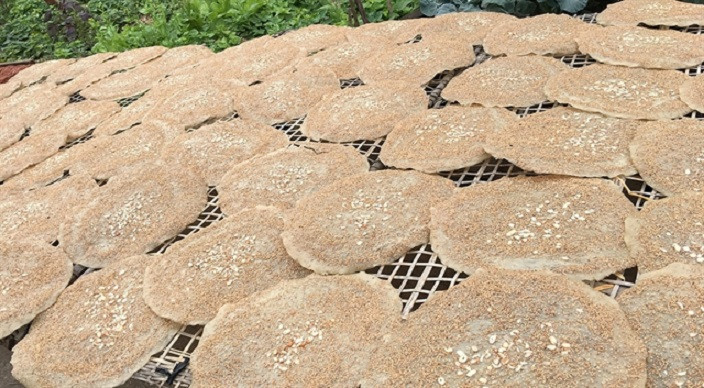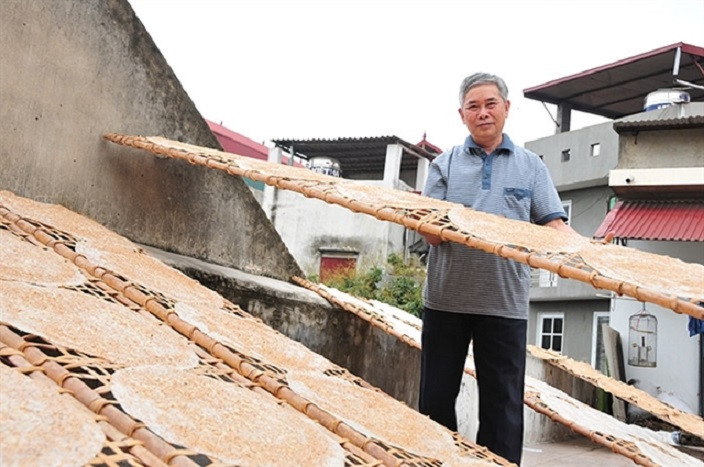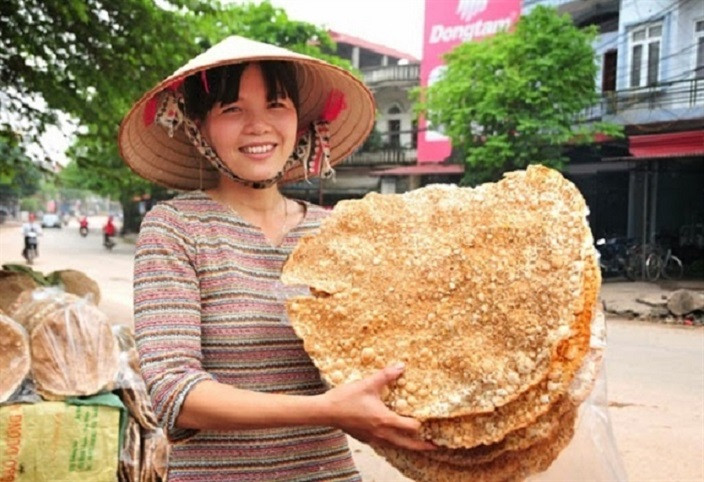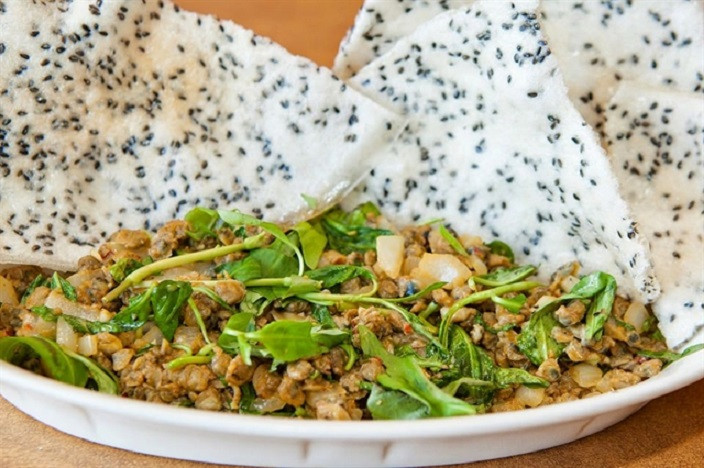
The rice cracker is known as bánh đa Kế because among six hamlets in the village which produce the crackers, Kế rice crackers are considered most tasty, having special characteristics that those made in other places cannot match, said local Nguyễn Thị Chiến, 75, an artisan in making bánh đa for several decades.
Chiến said making tasty bánh đa is not easy. “Cooks have to master many complicated processes.”
Main ingredients include: quality rice imported from Hải Dương, Thái Bình and Nam Định provinces, sesame, peanut, sugar and salt.
Cooks have to wash the rice very gently to preserve the outer layer, then soak it for five or six hours in a terracotta or ceramic pot until it has a sour flavour and turns plump before grinding it. Traditionally, the rice is ground by hand in a stone mortar, said Chiến, but noted that today, machine grinding is common to save time and effort.
According to Chiến, the most important thing is to grill the cake, which requires the skills gained in experience. “When the cake is grilled, it must be completely and evenly dried.”

Typically grilled over a charcoal fire by hand, skilled Kế cooks make the crackers crispy and with the warm aromas of buttery fat peanuts, sesame and sweet potato, Chiến said, noting that it has become a local speciality and a traditional gift well known inside and outside the country.
A group of visitors from Hà Nội led by Đoàn Thị Tuyết said they very much enjoy bánh đa Kế, each buying a package of ten cakes to take home as presents for friends and relatives.
Tuyết said her group also enjoyed bánh đa xúc hến (fried mussels) and bánh đa xúc lươn (fried eels), two traditional dishes from the central region.

Visitors to the area also have the chance to visit several scenic spots and ancient temples such as the Dĩnh Kế Temple (locally known as Nghè Cả Temple) which was built hundreds of years ago with exquisite carvings.
“We are invited to visit the site again next Lunar New Year on the first lunar month’s fourth day to join a big festival with monks, Buddhists and guests going to the hamlet,” said Tuyết.

The craft of bánh đa Kế production has been going on here for 600 years, passed down from generation to generation. First locals made bánh đa during the time between crops, but then it becomes a traditional job bringing stable monthly income for villagers, said chairwoman of the Dĩnh Kế Ward Nguyễn Thị Hồng Vinh.
She said Bánh đa Kế has a special sweet fragrance from quality rice in combination with peanut, sesame and other ingredients, so it is selected as an outstanding item of Bắc Giang to join exhibitions and food festivals in many localities in Việt Nam and abroad.
"The job has been recognised with labour protection and the product is exported to Korea, Japan and elsewhere," she said, adding that the province has policies to encourage artisans to hand down the job to younger generations in order to preserve this local speciality. — VNS